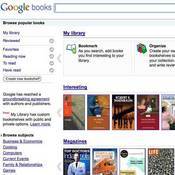Consider these how-to tips from one of Google's own search experts, plus insight into why searches sometimes go wrong.


Top 15 Google Apps For Business
Slideshow: Top 15 Google Apps ForBusiness(click image for larger view and for full slideshow)
Google Search works most of the time, but not always. To help improve its already impressive relevance, Google employs Daniel Russell, a member of its search product team, to understand what people do when they search, what they're thinking about when they're searching, and why things sometimes go wrong.
Russell describes himself as a search anthropologist. "I don't do classical anthropology in the sense of going off and living in the field for a long period of time," he said in a phone interview. "We don't have time for that."
Russell likens his job to that of a salvage archaeologist, a researcher called in when, say, potentially significant artifacts are uncovered at a building site. He has to quickly assess how users are using new search features as they're rolled out, and how they change the way people search.
Google has an interest in helping people search more efficiently and, as Russell describes it, there are several ways Google does that.
"We've been doing lots of things to subtly make the efficiency of search better," he said, pointing to ongoing user-interface enhancements. As another example, he cites the daily search puzzle that Google launched in April, A Google a day.
"We're not driving ad traffic or making money off this," Russell said. "This is purely an educational program masquerading as a fun thing to do."
Google also educates teachers, who in turn teach other teachers and students about more efficient ways to search. This scales much better than trying to teach everyone individually, Russell said.
And there's a lot people can learn about search, on Google or elsewhere. For example, Russell said that he has conducted a series of studies showing that 90% of the U.S. Internet using population is unaware of how to use the control-F key combination (command-F on a Mac) to search for a word on a Web page or in a Word or Docs file.
"About 50% of U.S. K-12 teachers don't know how to do this," he said. "The ideal situation would be Google Docs is watching you over your shoulder and says, 'You look like you're looking for something. Did you know about control-F'?"
Microsoft of course tried this already and named its assistance software "Clippy," unaware that its effort to help its users would go on to become one of the most ridiculed technologies in recent memory.
"Clippy was a great idea but it suffered from a major problem," said Russell. "It was always trying to help you out in situations that it wasn't quite right. It had low-precision: It would trigger on something that wasn't right."
As a contrast, he points to Google's search spelling correction technology, which gets used all the time. "It's very similar to Clippy," he said. "It's trying to do a similar job, but its precision is incredibly high."
But Google users don't have to wait for Google's help to search more efficiently; they can take responsibility for learning how to search better. Beyond the various recommendations that Google offers on its Search Help pages, Russell suggests six strategies to improve one's search skills.

Slideshow: The Top 16 Google Services
Slideshow: The Top 16 Google Services(click for larger image and for full slideshow)
Know Your Search Self
Russell says there's a whole spectrum of ways that people search. He likens search skill to driving: Some people are comfortable at modest speeds and some want to race. Knowing how to drive your search engine means knowing what advanced commands exist and when you might use them. Awareness of one's search competence is the first step to improving it.
Understand the Information Space
Say you're writing about digital photography, Russell suggested. You'd do well to be aware that there are websites out there that specialize in digital photography, like dpreview.com. Knowing about rich sources of information can save search time. Likewise, knowing where there are informational gaps can be helpful. "A lot of newspapers don't allow Google to crawl their obituaries," he explains. So often such searches may be best conducted through the search engines offered on individual newspapers' websites.
Understand How Information Can Be Mapped From One Form to Another
Russell also says searchers can benefit from knowing how information can be related to other information, through related pages links or through a reverse dictionary, which supplies words that fit a user supplied definition. An example posted on his blog on Tuesday offers a tip for using Image Search to determine whether a name is more likely to be male or female.
Understand How to Assess Credibility
That means knowing whether or not to trust a given Wikipedia article, Russell says. It means knowing whether a retired farmer writing about nuclear power on his blog is legitimate authority or an opinionated crank. Of course the popularity of news sources that shape their coverage to match their politics suggests credibility isn't foremost in the minds of the public.
Understand How Expertise Affects Search
Being an expert in a given area changes how your search, says Russell. Not everyone can be an expert in every search, but being aware of this may provide motivation to research before your search, so to speak.
Strive for Search Result Literacy
Russell advises searchers to understand the elements that make up a search result. The goes beyond being able to tell the title from the URL from the snippet. It means knowing, for instance, that snippets don't use ellipses to mark the omission of information in a way that readers might expect.
"People often misread the ellipses thinking that they're the way a human would write the ellipses," said Russell. "The problem is that algorithm does not necessarily respect the semantics of English so it may have elided something important."
As an example, a term like "Transformers 4" in a search result snippet may be linked via an ellipsis to a phrase "was a wonderful movie" when in fact the full review from which the terms were taken might have been referring to a different, elided movie as wonderful.
Why bother worrying about how search works? Russell explained his reasoning in a blog post in March: "Google should teach people how to think about research, rather than just search. There's an important shift in thinking here. The difference is one of scope and scale. A research task is what people do to solve sophisticated problems, while a search is what they do to solve sub-pieces of the larger problem. Google supports search very well. But we don't help our users with their larger research task ... yet."
Attend Enterprise 2.0 Santa Clara, Nov. 14-17, 2011, and learn how to drive business value with collaboration, with an emphasis on how real customers are using social software to enable more productive workforces and to be more responsive and engaged with customers and business partners. Register today and save 30% off conference passes, or get a free expo pass with priority code CPHCES02. Find out more and register.
About the Author(s)
You May Also Like







